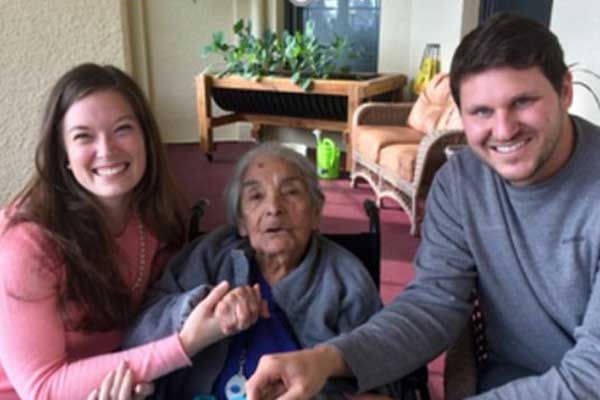Call Center for Community Today!
HOW CAN WE HELP?
Contact Us Online
We will get back to you as soon as possible.
Please try again later.
Providing Support for Disabilities, ATAP Work Services in Sitka

INTELLECTUAL OR DEVELOPMENTAL DISABILITY SERVICES
What is an Intellectual or Developmental Disability?
Alaska State Law: Developmental disability (DD) means a person has a severe, chronic disability attributable to a mental or physical impairment that manifests before the person is 22 and is likely to continue indefinitely. This impairment results in functional limits in three or more major life activities, including:
- Self-care
- Receptive and expressive learning
- Learning
- Mobility
- Self-direction; capacity to live independently
- Economic self-sufficiency
These all result in a person’s need for special, interdisciplinary, or generic assistance, supports, or other services that are lifelong or last for an extended time and are individually planned and coordinated. Under Alaska laws, developmental disabilities include mental retardation, cerebral palsy, autism, and seizure disorder. In some cases, this may include mental illness or fetal alcohol syndrome. The disability must result in substantial functional limitations and meet the other criteria in order to qualify for Alaska state-funded programs CFC uses to serve IDD clients.
OUR SERVICES FOR PERSONS WITH INTELLECTUAL OR DEVELOPMENTAL DISABILITIES
All of Center for Community’s Intellectual and Developmental (IDD) services are funded by Medicaid Waiver programs. To qualify for services a person must have a developmental disability diagnosis per State of Alaska Law. Some of these services may be provided five to seven days a week based on client’s needs and State authorization. CFC’s IDD programs can include one or a combination of the following ongoing services:
Case Management
Case managers work with a family or person with IDD to help them determine which state grant or Waiver program services can help them most and assist with State application for eligibility in the programs. Case managers provide person-centered plans and monitor service provision after a person with IDD is approved for State services.
Respite
Provides families or caregivers with a break from care giving for a person with IDD.
Supported Employment
Helps persons with IDD work as independently as possible in local employment.
Supported Living
Helps persons with IDD live in the home of their choice with assistance with activities of daily living and their maintenance of their household (chores, shopping, personal grooming, etc.)
Day Habilitation
Helps persons with IDD work on social and community integration skills designed to help them succeed in the community of their choice.
Referrals
Case managers and IDD staff provide families, caregivers and persons with IDD with information and referrals to other community based organizations to help them successfully remain in their home and community of choice.

THE STATE OF ALASKA INTELLECTUAL & DEVELOPMENTAL DISABILITY PROGRAMS
COMMUNITY DEVELOPMENTAL DISABILITIES GRANT
Tex The Community IDD Grant Program (CDDG) helps individuals with developmental disabilities learn or maintain skills to live as independently as possible in their home and community of choice, and reduces the need for long-term residential care. Services that a person with a developmental disability (IDD) may receive from the grant vary depending upon the person’s age and unique needs. A person with IDD may choose to begin with CDDG services while awaiting State Waiver approval or choose only to receive CDDG grant services. A CFC case manager will help persons with IDD and their family/caregiver complete the intake/screening for State CDDG grant services. All final eligibility and approval for CDGG services comes from the State and this State approval must be in place before CFC services can start (case management ongoing, supported living, supported employment, respite and/or day habilitation).
STATE DD WAIVER SERVICES
The purpose of the State Home and Community Based (HCB) Waiver is to offer a choice between home and community-based services and institutional care for people who meet Waiver service criteria. There are several State Waiver Programs available dependent on age, and disability.
Children and adults with IDD would most likely apply for either CCMC (Children with Complex Medical Conditions), and/or Intellectual and Developmental Disabilities Waiver (IDD). A CFC case manager works with persons with IDD and/or their guardian to help them apply for and work through the State Waiver process. All final eligibility and approval for HCB Waiver services comes from the State and State approval must be in place before CFC services (case management ongoing, supported living, supported employment, respite and/or day habilitation) can start.
Case Managers can help families with information on TEFRA: Medicaid for Disabled Children Living at Home, visit Qualis Health (click here).
Work First and Families First in Sitka

WORK SERVICES PROGRAMS FOR ATAP CLIENTS
Center for Community provides employment counseling and support to persons in Southeast Alaska who are enrolled in the Alaska Temporary Public Assistance Program. Participants in the program must be referred to Center for Community by the State of Alaska Division of Public Assistance.
Our knowledgable and experienced counselors equip participants with the tools needed to meet their goals, guiding them step by step through the process. This program is referral based—you must be referred to Center for Community by the State of Alaska Division of Public Assistance. We have staff in Ketchikan, Juneau, and Sitka.
- For service in any part of Southeast Alaska north of Sitka, please contact our Juneau staff, 907-465-1380.
- For service in the Sitka area, contact 907-966-4220 or 1-800-478-6970 extension 220.
- For service in Petersburg and south through Ketchikan, contact our Ketchikan office: 907-225-1904.
Call Center for Community Today!
There's always excitement surrounding the transition from summer to fall. The changing leaves and cooler temperatures allow older adults to slow down and appreciate the opportunities this season br... read more >>
Nearly 79 million adults live in a shared household, with many parents relying on thei... read more >>
Talking with a parent about transitioning to in-home care isn’t easy. They might see it as a threat to their independence and refuse any am... read more >>
Many associate social media sites with young people, assuming older adults wouldn't be interested in them. Yet, they're also popular with seniors and can help them in a few unique ways. As a <...> read more >>
It can be rewarding to provide senior care for a loved one, especially when they're your parent. However, being a caregiver can also be tim... read more >>
If you provide senior care to an older loved one, the various duties you're responsible for can often feel overwhelming. However, you don't... read more >>
Amid all the effort in keeping your parents comfortable and healthy, it’s easy to forget an important element of senior care: helping them stay ... read more >>
As a person ages, the body undergoes many changes that take time to adapt to. However, growing older doesn't have to be challenging. By enlisting the help of read more >>
It can be challenging to care for an ill or aging parent on your own. Challenges of being a full-time caregiver always arise, such as work obligations, an illness, or an out-of-town emergency. Luck... read more >>
Your parents may have indicated that they want to grow older at home, or you may think it's better for them to age in place. In-home care i... read more >>
CENTER FOR COMMUNITY
CONTACT US ONLINE
Contact Us Online
We will get back to you as soon as possible.
Please try again later.
